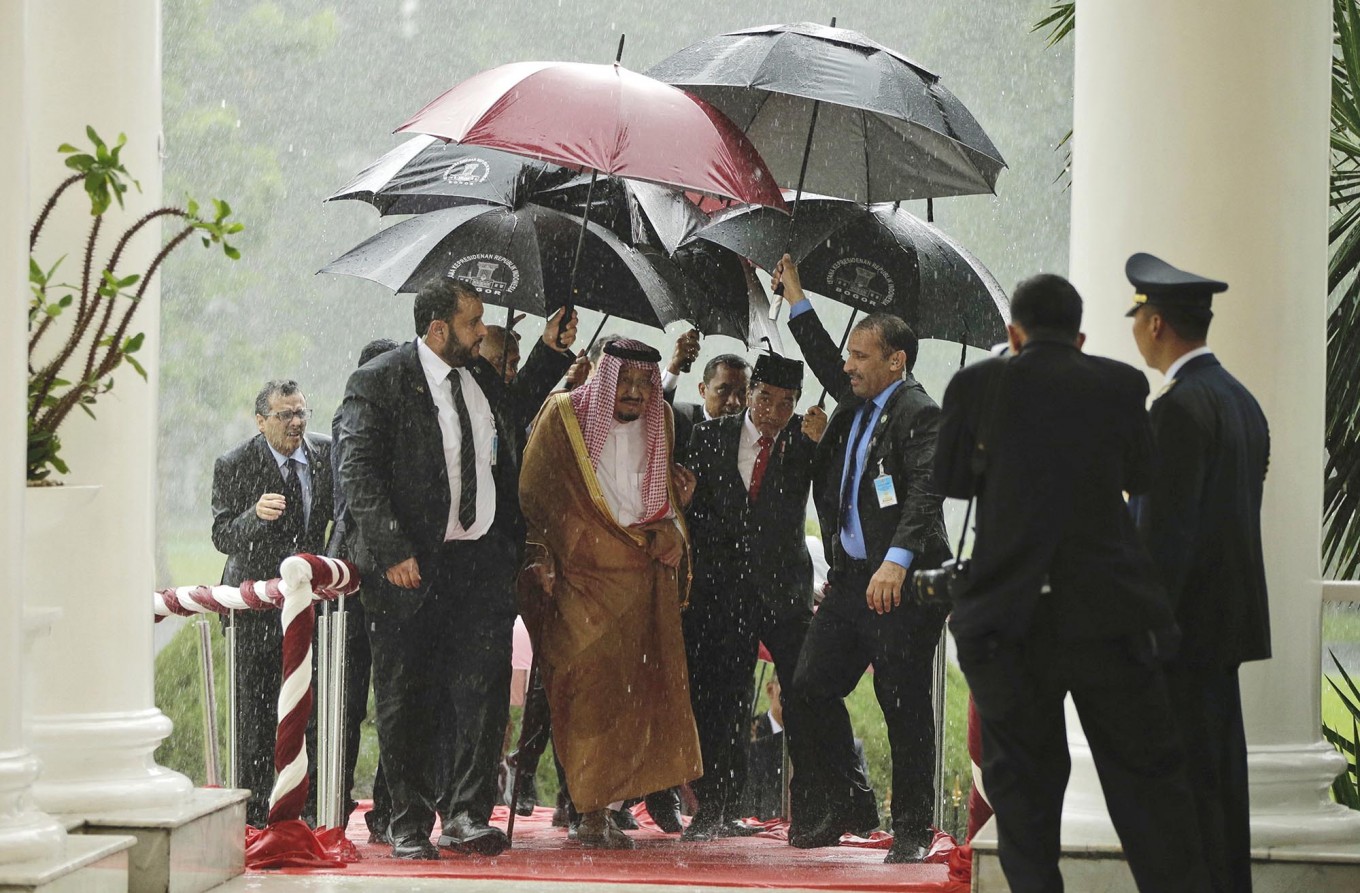In terms of tight security and logistical preparations, the number of aircraft and size of the delegation, the visit of Saudi Arabia’s royal family to Indonesia today is comparable only to a visit by a president of the United States.
Millions will cheerfully follow the historic visit of King Salman bin Abdulaziz al-Saud, the first by a Saudi head of state in 47 years, and his entourage of 1,500 people, including 25 princes.
The extravagant nine-day visit of King Salman to Jakarta and Bali is indeed crucial not just for the the two countries but also for the Islamic world. Indonesia is the world’s most populous Muslim-majority nation, comprising mostly Sunnis, as in the Saudi kingdom, and King Salman is the custodian of Islam’s holiest sites, Al-Masjid al-Haram (the Sacred Mosque) in Mecca and Al-Masjid an-Nabawi (the Prophet’s Mosque) in Madina.
However as Indonesian Muslims continue to pour into Mecca and Madina, and as many have long sought to study in the kingdom, a state visit by Saudi Arabia’s leader should not really be so historic. Somehow we have not been on the kingdom’s radar — as reflected in the total Saudi investment here of less than US$1 million last year according to Antara news agency.

Therefore the visit should produce concrete results for both members of the G20. There ought to be significant follow up beyond the signing of 10 memoranda of understanding.
The low level of Saudi investment here means that Indonesians spend much more money in the kingdom than we receive from the oil-rich state, through the hundreds of thousands of Indonesians who go on the haj or (minor haj) pilgrimage every year.
Nevertheless we also recognize the remittances from Indonesians in the kingdom, mostly hard-working domestic servants, which contribute to our economy.
As Indonesia sends the world’s largest number of pilgrims to the Holy Land every year, to the extent of seeking an additional quota to ease the long queues, we support their expectations of better services, including more facilities for arrivals and departures at the airports.
The Saudi government has in fact been improving facilities for pilgrims, the pilgrimages account after all, along with their related support services, for the second-largest contribution to the kingdom’s economy after oil and gas.
Apart from oil imports, we need to boost cooperation in trade and investment. In January, state-owned oil and gas firm Pertamina dropped two of three planned joint ventures with Saudi state-owned oil company Aramco, to upgrade oil refineries in Balongan, West Java, and Dumai in Riau, after two years of negotiation. The two companies signed a joint venture agrement to upgrade Cilacap oil refinery in Central Java in December.
But there is still much room for improvement amid the Saudis’ agressive efforts to reduce their dependence on oil. Indonesia is part of the King’s Asian tour to court investors for a planned initial public offering for Saudi Aramco.
It is greatly hoped that the king’s visit will enormously boost Saudi investment in Indonesia, including in infrastructure and oil-related industries.
Selamat datang, Your Majesty.



















